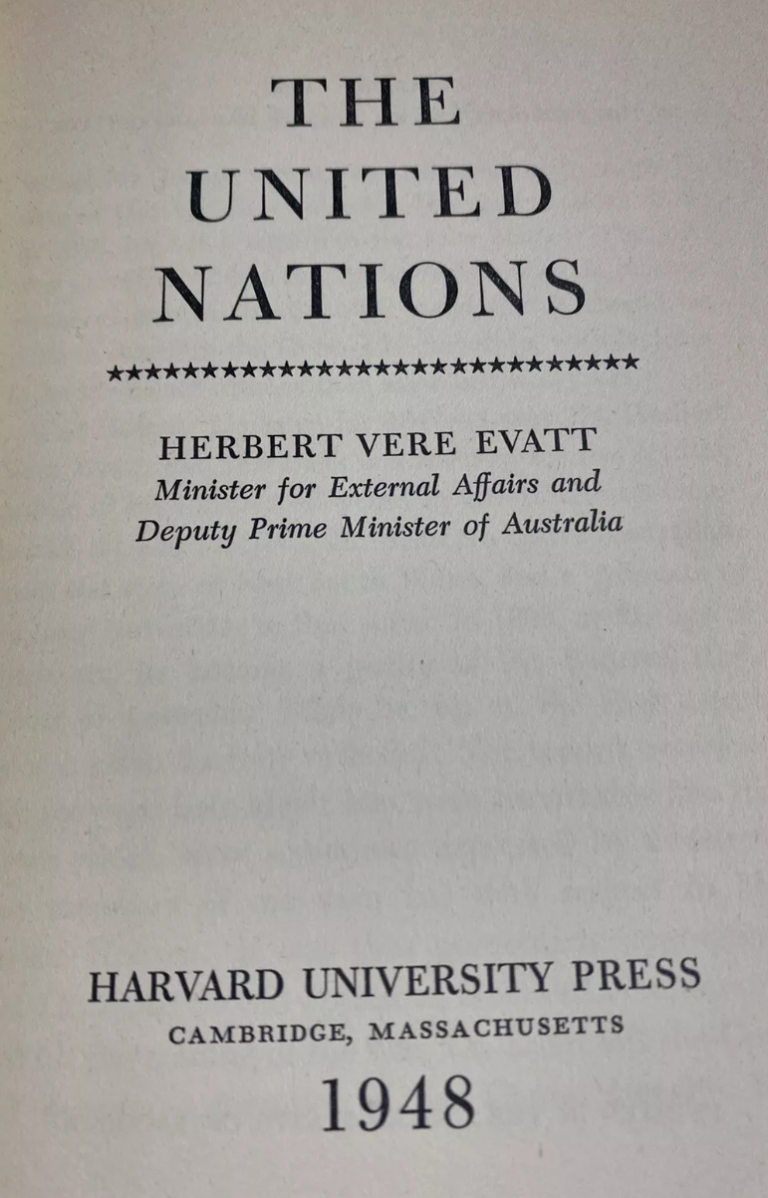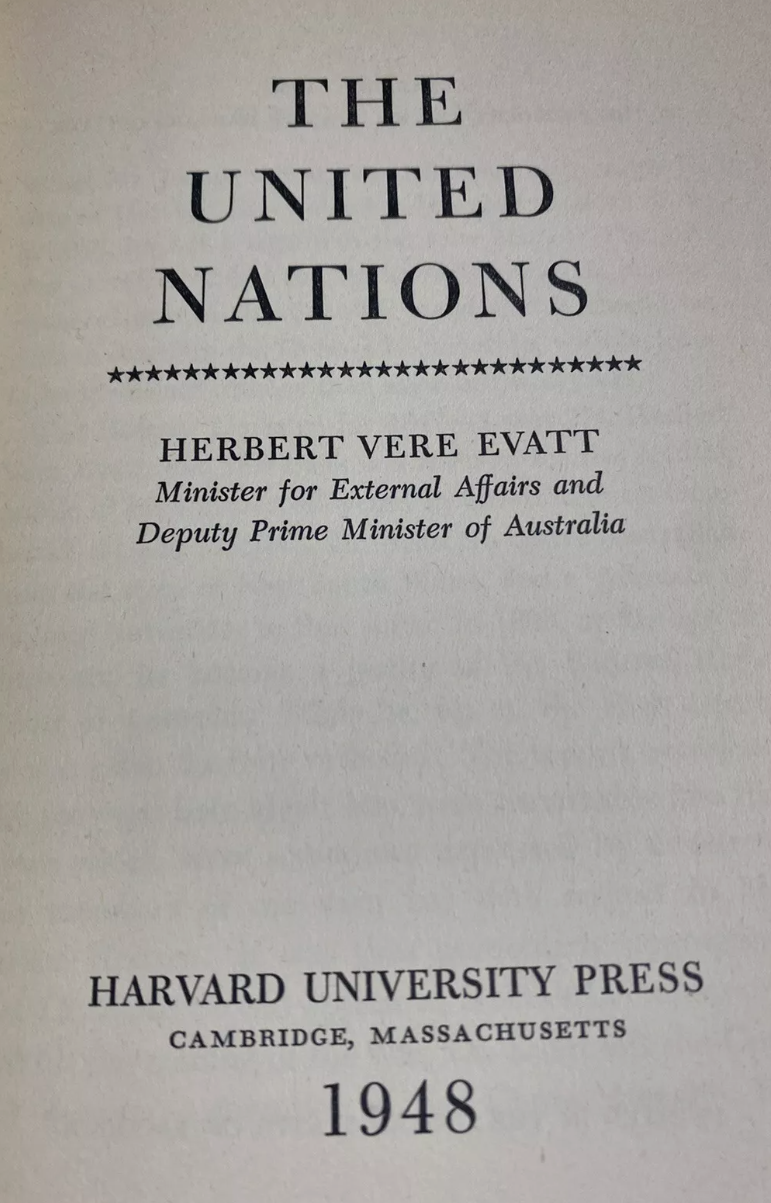Herbert Vere Evatt, The United Nations (1948)
Menzies and his long time rival H.V. Evatt had contrasting world views on numerous subjects, but one of the most important was quite literally their view of the world, i.e. their approach to international relations. While Evatt was a great believer in the utopian possibilities of international cooperation who played a central role in the founding of the United Nations, Menzies was far more of a realist, who maintained a certain skepticism about the UN, and believed that alliances with ‘great and powerful friends’ remained crucial to Australia’s security.
Nevertheless, the two men had some level of respect for one another, hence when Evatt, then Australia’s External Affairs Minister, published a book on The United Nations he felt compelled to send it to Menzies, as Leader of the Opposition, so that he could be fully aware of Evatt’s opinions on important matters. To Menzies’s credit he read the book thoroughly, so thoroughly in fact that he was soon quoting Evatt’s views in the House of Representatives to expose the flaws in his rose-coloured view of the potential of the UN. In a debate in February 1949, Menzies pointed out that Evatt himself had admitted that Australia had to accept the veto power of permanent members of the UN Security Council when it came to matters of enforcement, even though that veto completely compromised the UN’s ability to resolve major disputes:
‘That truth has been recognized before by the Minister for External Affairs himself. I read with great interest a book fresh from the press written by him on the United Nations, and containing a reproduction or expansion of some extremely interesting lectures he had given on this matter in the United States… It cannot be said against the Minister for External Affairs that he has not challenged the veto right, left and centre, but his challenge has had a limit. It is most significant that in the very book to which I have referred – and this is included in the historic summary of the approach – the Minister says that Australia was prepared to accept the veto in respect of enforcement action, but could see no reason whatever why it should be applied in the peaceful settlements of disputes. Thus, the veto is acceptable if we are dealing with enforcement action.
I do not quarrel with that statement, because acceptance of the veto in those circumstances is, no doubt, completely in line with the real facts of international life, but it involves two conclusions. The first is that no great power – that is to say, no permanent member of the Security Council – can be restrained from aggression by the United Nations unless we imagine the curious event that it votes in favour of itself being restrained from aggression. And as we cannot admit that possibility, we are left with the fact that no great power can be restrained from aggression, having regard to the existence of the veto, even in that limited sense, because no decision about restraint could ever be taken at all. In the second place – and I emphasize this – it means that the forces to be placed by a member nation at the disposal of the Security Council under Article 43 of the Charter need not, and cannot, be great, because there is no need for a great international police force to restrain a small power. A great international military array might very well he needed to restrain a great power, but if a great power cannot be restrained by action of the Security Council, the question does not arise. Thus, all the talk about the United Nations being a “League of Nations with teeth” turns out to be nonsense. The Security Council, under the terms of the Charter, and having regard to the existence of the veto, cannot have at its disposal anything more than a nominal force. If honourable members realize that, they will see in a flash that if there is aggressive action by a great power – and that is the real threat to the peace of the world today – and if that power is to be restrained at all, it will be restrained, not by the Security Council, but by some other great power or great powers acting together, not under the Charter, but in spite of the existence of the Charter.
It is for those reasons, which I venture to say are highly important reasons, that one concludes that, while support for the Charter of the United Nations is, of course, to be a background and the ultimate ideal of our international policy, the immediate task which, unless it is performed, will prevent any real peace being achieved in the world, is to build up the strength of the British Empire and of the United States of America, first and foremost. Secondly, it is to press on with the restoration of France and of western Europe generally. Thirdly, it is to promote among the nations of western Europe such special pacts of assistance, such special alliances, if one must use an old-fashioned word, as will bring the Soviet Union – and I do not believe that anything else will do it – to a realization that aggression will not pay any longer, and that a period of co-operative action must begin.’
Sign up to our newsletter
Sign up for our monthly newsletter to hear the latest news and receive information about upcoming events.



